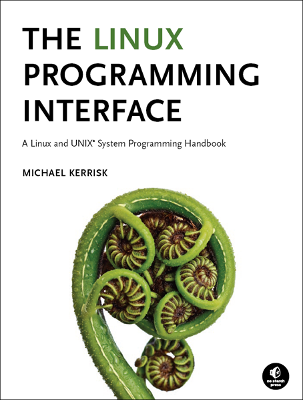Linux/UNIX Network Programming course outline

- Course Introduction
- Sockets: Introduction
- Socket types and domains
- Creating and binding a socket (socket() and bind())
- Overview of stream sockets
- listen() and pending connections
- accept() and connect()
- I/O on stream sockets
- Overview of datagram sockets
- I/O on datagram sockets
- Internet Domain Sockets
- Internet domain sockets
- Data-representation issues
- Presentation-format addresses
- Loopback and wildcard addresses
- Internet domain stream sockets example
- Internet Domain Sockets: Address Conversion
- Host addresses and port numbers
- Host and service conversion
- Internet domain sockets example with getaddrinfo()
- Sockets: Further Details
- Socket shutdown (shutdown())
- Socket options
- TCP TIME-WAIT state and
SO_REUSEADDR
- UNIX Domain Sockets
- UNIX domain stream sockets
- UNIX domain datagram sockets
- Further details of UNIX domain sockets
- UNIX Domain Sockets: Ancillary Data
- Ancillary message types
- sendmsg(), recvmsg(), and struct msghdr
- struct msghdr in more detail (*)
- Ancillary data and struct cmsghdr (*)
- Example: passing a file descriptor over a socket (*)
- Alternative I/O Models
- Nonblocking I/O
- Signal-driven I/O
- I/O multiplexing: poll()
- Event-loop programming
- Alternative I/O Models: epoll
- Problems with poll() and select()
- The epoll API
- Creating an epoll instance: epoll_create()
- Populating the interest list: epoll_ctl()
- epoll events
- Waiting for events: epoll_wait()
- Performance considerations
- Edge-triggered notification
- epoll API quirks
- TCP/IP Overview
- The TCP/IP protocol stack
- The link layer
- The network layer: IP
- The transport layer
- Port numbers
- User Datagram Protocol (UDP)
- Displaying sockets and capturing packets
- Transmission Control Protocol (TCP)
- Overview of TCP
- Segments
- Sequence numbers
- Acknowledgements and retransmissions
- TCP header
- TCP state machine
- TCP connection establishment and termination
- Transmission Control Protocol: Further Details (*)
- Flow control and congestion control
- TCP sliding window
- Displaying sockets
- Capturing network packets
- tcpdump
- wireshark
- Packet filtering
- Packet filtering: capture filters
- Capture filters
- Capture filters and BPF (*)
- Packet filtering: display filters
- wireshark display filters
- Other networking Tools (*)
- Displaying devices and addresses
- Testing connectivity and routes
- Raw Sockets (*)
- Overview of creating and using raw sockets
- Raw sockets example
- Open File Descriptions and Descriptor Duplication (*)
- Relationship between file descriptors and open files
- Duplicating file descriptors
(*) Topics marked with an asterisk are optional,
and will be covered as necessary and time permits.
Return to the course overview
